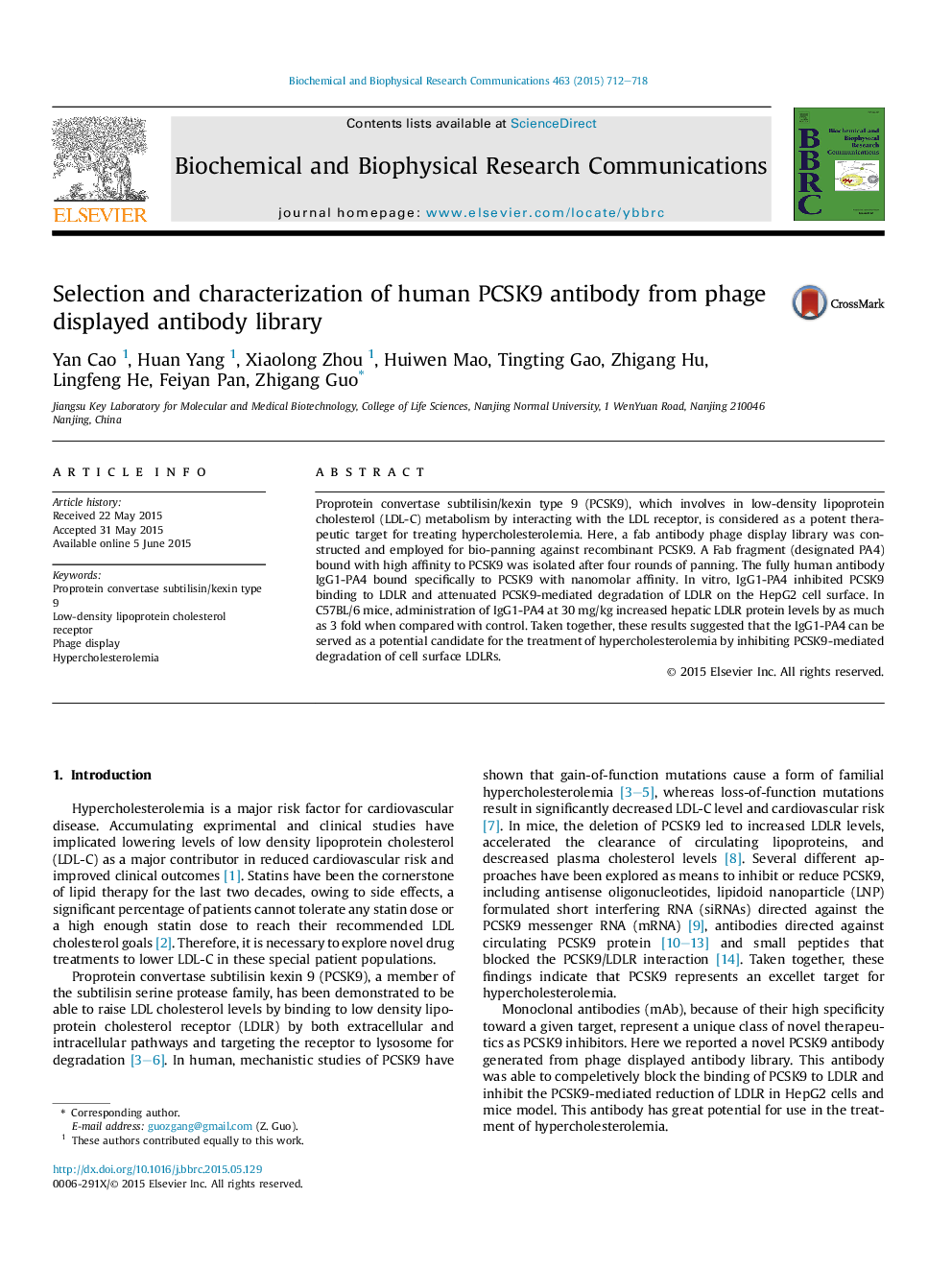| Article ID | Journal | Published Year | Pages | File Type |
|---|---|---|---|---|
| 10750116 | Biochemical and Biophysical Research Communications | 2015 | 7 Pages |
Abstract
Proprotein convertase subtilisin/kexin type 9 (PCSK9), which involves in low-density lipoprotein cholesterol (LDL-C) metabolism by interacting with the LDL receptor, is considered as a potent therapeutic target for treating hypercholesterolemia. Here, a fab antibody phage display library was constructed and employed for bio-panning against recombinant PCSK9. A Fab fragment (designated PA4) bound with high affinity to PCSK9 was isolated after four rounds of panning. The fully human antibody IgG1-PA4 bound specifically to PCSK9 with nanomolar affinity. In vitro, IgG1-PA4 inhibited PCSK9 binding to LDLR and attenuated PCSK9-mediated degradation of LDLR on the HepG2 cell surface. In C57BL/6 mice, administration of IgG1-PA4 at 30 mg/kg increased hepatic LDLR protein levels by as much as 3 fold when compared with control. Taken together, these results suggested that the IgG1-PA4 can be served as a potential candidate for the treatment of hypercholesterolemia by inhibiting PCSK9-mediated degradation of cell surface LDLRs.
Related Topics
Life Sciences
Biochemistry, Genetics and Molecular Biology
Biochemistry
Authors
Yan Cao, Huan Yang, Xiaolong Zhou, Huiwen Mao, Tingting Gao, Zhigang Hu, Lingfeng He, Feiyan Pan, Zhigang Guo,
